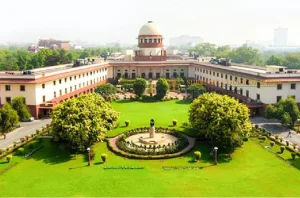

Policing as an Academic Discipline
- /
- Articles and Blogposts /
- Policing as an Academic Discipline
The Rashtriya Raksha University Bill, 2020 and The National Forensic Sciences University Bill, 2020 have recently been passed by both houses of Parliament. The Rashtriya Raksha University will be located in Gandhinagar, Gujarat and the National Forensic Sciences University will have two campuses, one in Gandhinagar, Gujarat and the other in Delhi. Both institutions have been declared institutions of national importance. The Bill describes National Forensic Sciences University as an institution that will “facilitate and promote studies and research and to achieve excellence in the field of forensic science in conjunction with applied behavioural science studies, law, criminology and other allied areas and technology and other related fields.” The Rashtriya Raksha University is being established with the objective inter alia, “of advancing and disseminating education, research, training and scholarship in the domain of policing including coastal policing, security, law enforcement, criminal justice, cybersecurity, cybercrime, artificial intelligence and related areas of internal security.”
Effective policing with due regard to fairness and due process are essential components of the rule of law and maintain public trust in the system of justice administration. At the heart of policing lies the capacity of personnel to perform their duties effectively and fairly. The need for Indian universities doing cutting edge work on criminology, forensic science, behavioural science, psychology and cybersecurity is thus undeniable. As the discourse on police reform grows in India, the role of these fields in the prevention and investigation of crimes is crucial.
The Indian police force is currently hamstrung by a lack of resources, human, financial and technical. The Indian Justice Report 2019 revealed that India has 151 police persons for 100,000 population has one of the lowest police to population ratios in the world. The report also pointed out that not only are individuals within the police force overstretched and overstressed, police organizations are unable to properly specialize or be equipped to carry out effective crime prevention and investigation. Justice (Retd.) Madan Lokur remarked in the recent Indian Police Foundation Day lecture that, “On an average, each police station is handling 1,500 cases excluding backlog. With this kind of pressure, the police are bound to make mistakes and carry out a shoddy investigation. But something must be done to fix it and the answer is police reforms. Else you will end up with hundreds of cases with shoddy investigation and hence an unfair trial.” Given this kind of burden of cases and resource constraints, the police force in India has not been able to keep abreast with the latest developments in forensic science, psychological profiling and cybersecurity. The Status of Policing Report 2019 revealed that police personnel are not properly equipped to deal with the new skills for tackling and investigating crimes, with only two-third of the civil police reporting ever receiving any training in forensic technology. 42 per cent of civil police personnel said that forensic technology is never available at the police station. Almost one in three civil police personnel never received training on forensic technology. Around one-fourth of the civil police received their last training on forensic technology at the time of joining. Given these figures, it is obvious that modernisation and technological upgradation of the police is essential. Such modernisation should be based on the latest technology and best practices from other jurisdictions and tailored to Indian specificities. In the context, it would be useful to institutionalise policing as an academic discipline so that academic experts can work with and train the police in these domains.
The Minister of State for Home Affairs, G Kishan Reddy while introducing the Rashtriya Raksha University Bill remarked that to meet the challenges of global terrorism, economic offences and organised crime, our police need training for investigation, changing laws, cybercrimes, cybersecurity, behavioural science and psychology. A lack of experts in these fields is hampering investigation and prosecution of crimes and delaying trials. He said that currently, around 1.8 lakh court cases are pending in the country due to a lack of forensic professionals. Out of 8236 sanctioned posts in forensic science laboratories, there are 4097 vacant posts. The Minister also stated that there are 1.14 lakh posts of forensic experts all over India and the establishment of this university would help in filling such posts. He also mentioned that NASSCOM stated that 3.5 million cybersecurity experts are needed in India.
The establishment of these universities is a step in the right direction towards institutionalising modern policing and fostering excellence in domains related to scientific investigation and crime prevention. These universities will hopefully produce experts who can inform the practice of policing in India with the necessary scientific and technological inputs to make policing more effective, accountable and fair. However, the establishment of such universities does not diminish the need for further systemic reforms within the police to increase accountability and transparency.
[ReviewDisclaimer]

Leah Verghese
RECENT ARTICLES



Lessons for Judiciary from Space Sector

The missing piece in India’s reform story—a strong tribunal system

-
Rule of Law ProjectRule of Law Project
-
Access to Justice SurveyAccess to Justice Survey
-
BlogBlog
-
Contact UsContact Us
-
Statistics and ReportsStatistics and Reports
© 2021 DAKSH India. All rights reserved
Powered by Oy Media Solutions
Designed by GGWP Design